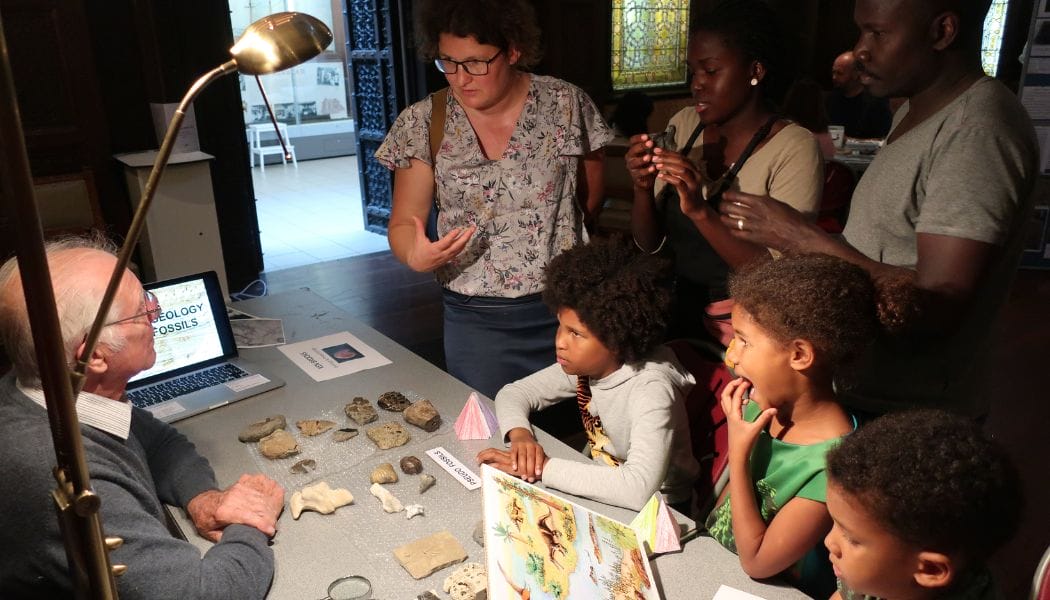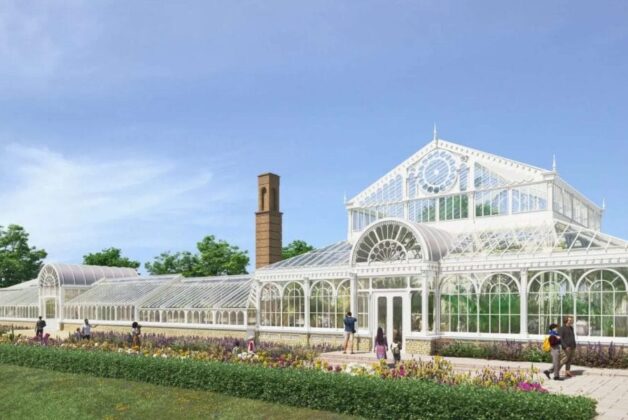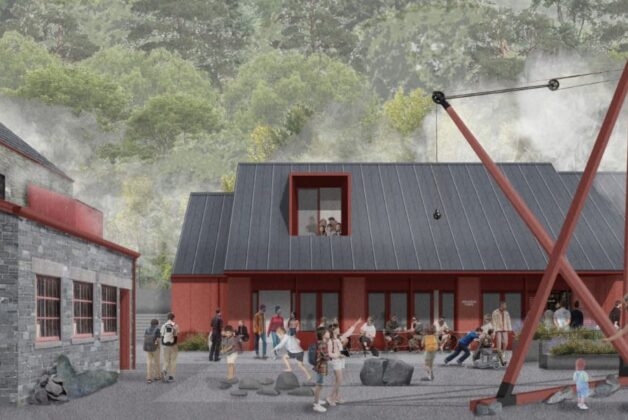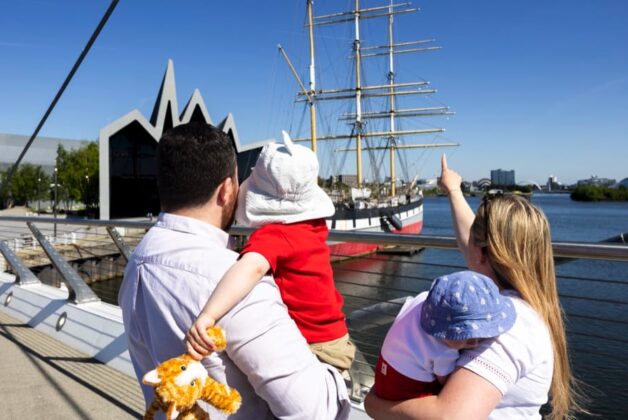Image: Relics Roadshow (Hastings Museum & Art Gallery)
The London museum allocates up to £10,000 to 12 regional venues to host events on climate change and biodiversity loss as part of its ‘Fixing Our Broken Planet’ initiative.
The Natural History Museum in London has backed 12 regional cultural venues to run events and activities related to what it calls the ‘planetary emergency’ of climate change, biodiversity loss, and pollution.
The museum is providing grants ranging from £2,500 to £10,000, to the organisations as well as resources including content from its new Fixing Our Broken Planet gallery.
The museum said its own research into the planetary emergency combined with the expertise and reach of regional museums is hoped to “inspire conversations nationwide on topics such as biodiversity decline, climate change and pollution.”
Organisations involved include Manchester Museum; Great North Museum: Hancock in Newcastle-upon-Tyne; World Museum in Liverpool; Cromarty Courthouse Museum; Wakefield’s National Coal Mining Museum for England, and Leamington Spa Art Gallery & Museum.
Also taking part is Hastings Museum and Art Gallery, which will use the Natural History Museum’s ‘Fixing Our Broken Planet’ content in bespoke pop-up displays.
Four of the 12 organisations will be delivering activity as part of the Natural History Museum’s free youth climate programme, Fixing Our Broken Planet: Generation Hope.
These will include the ‘Patchwork of Belonging’ project, a collaborative project with farmers, landworkers, and others in the Welsh food system led by Global Diversity Foundation.
The funding opportunity was made available to members of the Fixing Our Broken Planet: Community of Practice, a museum sector network established in September 2023.
Tom Bevan, Head of National Programmes at the Museum, said the programm is “perfectly placed to amplify stories from different communities and drive meaningful action for a future where people and planet thrive.”
The funded projects in full:
Climate Museum UK / Great North Museum: Hancock, Newcastle-upon-Tyne
A partnership to coincide with British Science Week 2025 working with secondary schools to explore how change and adaption unfolds over time. Workshops will use GNMHiS paleo-contemporary collections to draw links between the past and how we might live in the future.
Global Diversity Foundation, Llandysul
A continuation of the Patchwork of Belonging project which began in Morocco. Patchwork-making workshops, roundtable discussions, quilting and listening sessions, will be spaces for young people to share their own stories of belonging and how they are affected by environmental challenges. The project aims to collaborate with young farmers and migrant and diasporic communities in Wales.
Metronomes Steel Orchestra, London
The North Kensington-based Steel pan group will use instrument and music-making to tell the story of climate change in the Caribbean. Participants will make their own steel pans from scrapped metal before the project culminates in a celebratory performance at Notting Hill Carnival
World Museum, Liverpool
A series of workshops and events delivered by local practitioners and developed by the museum’s co-production group (NML Youth Engagement Forum) which will focus on the planetary emergency alongside local environmental issues.
The creative day will link with the museum’s exhibition, Bees: A Story of Survival, which explores ways that visitors can take personal action to reduce the existential threat to bees.
Cromarty Courthouse Museum
An exhibition, ‘Changing Tides: Cromarty’s Firth’ will draw on the FOBP gallery content while exploring the town’s changing relationship with the sea, its energy, and the impact on the community. Voices of the local community will be brought together through an oral history project, local photography, collaborative research, and a short film.
Hereford Museum & Art Gallery
Young people from Herefordshire will co-produce an exhibition which explores local impacts of climate change and offers solutions for a sustainable future. The exhibition will feed into the gallery’s ambitious redevelopment which will have coproduction at its heart.
National Coal Mining Museum for England, Wakefield
In October 2025, the museum will present the Black to Green festival. A youth-led event, activities will encourage visitors to take action towards mitigating the planetary emergency.
Alongside workshops and creative responses to the emergency, the festival will include a pop-up FOBP display.
Leamington Spa Art Gallery & Museum
Young people will co-curate an exhibition considering how their local area will be impacted by the planetary emergency, and how we can learn from history to find solutions for our future.
The museum’s collections will be used as a basis for conversations about reuse and repair, sustainable materials, and our relationship with water.
Creswell Crags, Worksop
Site-based research into the Ice Age period at Creswell Crags will be used as the foundation to explore our past relationship with the environment, and look towards a sustainable future. A workshop series spanning mining, litter, ecology, and food will run alongside an exhibition co-created with local young people and developed using FOBP content.
Hastings Museum and Art Gallery
The museum’s mineralogy and petrology collections will be used by a curator-in-residence to work with local secondary schools to consider geology and humanity’s reliance on mineral availability. Using materials and ideas generated through these workshops, an exhibition will be developed to share creative ideas for change and action.
Manchester Museum
A pilot learning programme exploring environmental justice, co-created with and for young people (aged 16-25) from marginalised groups across Greater Manchester. This will be hosted within the Museum’s Top Floor hub – a community centred space for action, sharing, learning, and dreaming.
Youth participants will also be invited to create and curate public interventions across the Museum. The project aims to amplify youth voices, equip them with the skills to make change happen, and help to build an intersectional youth climate movement in Manchester.
Shetland Amenity Trust
This project aims to inspire young Shetlanders to take pride in their heritage and pass it onto future generations through the creation of a Junior Rangers Programme. Active engagement with Shetland’s landscape will be core to widening engagement and enhancing a sense of ownership and responsibility for our surrounding environment and its ongoing survival.





